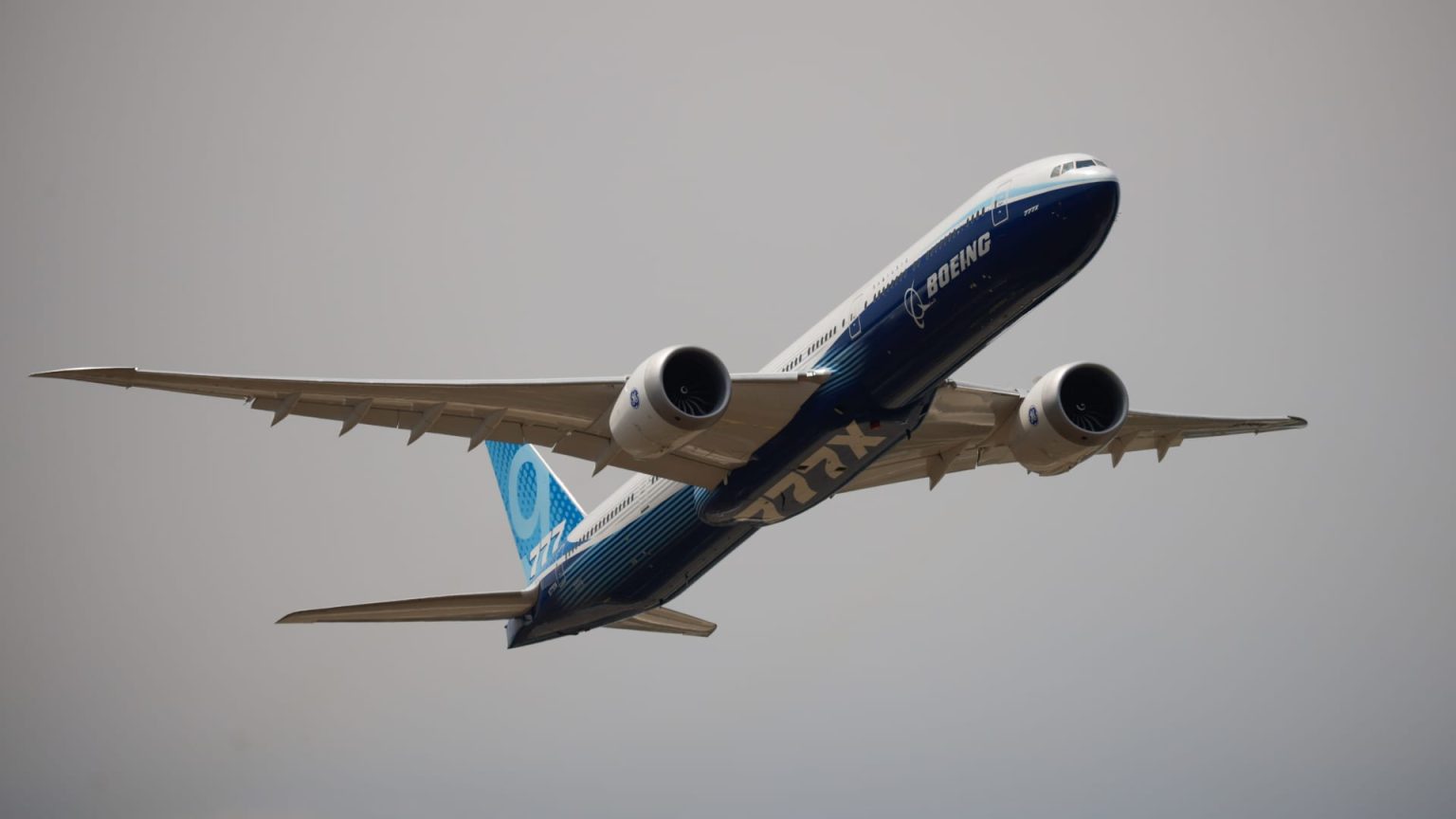Boeing has announced a pause in flight tests for its 777X aircraft after discovering damage in a structure of one of the wide-body planes. The company found the damage during scheduled maintenance to a custom part located between the engine and the airplane structure. As a result, Boeing has grounded the three other 777-9 airplanes in its test fleet. No further flight testing had been planned for these aircraft. Boeing stated that it is replacing the damaged part and will resume flight testing once ready. It has informed the Federal Aviation Administration and its customers, who have ordered a total of 481 777X aircraft according to Boeing’s website.
The grounding of the 777X test aircraft raises questions about the impact on the certification and delivery schedule for Boeing’s new wide-body jetliners. The 777X has been slated for delivery in 2025, five years behind schedule. Boeing had recently achieved a major milestone by beginning flight tests of the aircraft with the Federal Aviation Administration in July. The company’s leaders, including new CEO Kelly Ortberg, are working to move beyond a safety crisis that began with a doorplug blowout earlier in the year. The delay caused by the grounding and maintenance issue could potentially further postpone deliveries of the 777X.
Boeing’s decision to halt flight tests and ground the 777X aircraft comes as a setback for the company as it works to recover from a series of safety issues and setbacks. The 777X program has faced numerous challenges, including delays and production issues, which have already pushed back the delivery timeline for the aircraft. The damage found in the custom part during maintenance adds to concerns about the reliability and safety of the 777X, potentially impacting customer confidence in the new aircraft. Boeing’s priority now is to address the issue and resume testing as quickly as possible to minimize further delays.
The grounding of the 777X test fleet raises questions about the potential impact on Boeing’s financial outlook and reputation. The delay in certification and delivery of the new wide-body jetliners could have financial implications for the company, as it may face penalties and compensation claims from customers. Boeing’s reputation has already been tarnished by previous safety issues, including the grounding of the 737 MAX following two fatal crashes. The company’s efforts to rebuild trust with regulators, customers, and the public may be hindered by further delays in the 777X program, highlighting the need for Boeing to prioritize safety in its operations.
Boeing’s decision to pause flight tests of the 777X underscores the importance of rigorous testing and maintenance procedures in ensuring the safety and reliability of aircraft. The company’s commitment to addressing the issue promptly and resuming testing when ready demonstrates a focus on safety and quality in its operations. The incident serves as a reminder of the complex challenges involved in developing and certifying new aircraft, highlighting the need for constant vigilance and attention to detail in the aerospace industry. Boeing’s handling of the situation will be closely watched by regulators, customers, and the wider aviation community, as the company works to overcome its past safety issues and deliver a successful 777X program.
In conclusion, Boeing’s decision to pause flight tests of the 777X due to damage in a structure of one of the aircraft underscores the challenges and complexities involved in developing new aircraft. The grounding of the test fleet raises concerns about the impact on certification, delivery timelines, and Boeing’s financial outlook. The company’s efforts to address the issue promptly and resume testing demonstrate a commitment to safety and quality. Boeing’s ability to overcome these challenges and deliver a successful 777X program will be crucial in rebuilding trust with stakeholders and ensuring the future success of the company in the aerospace industry.


